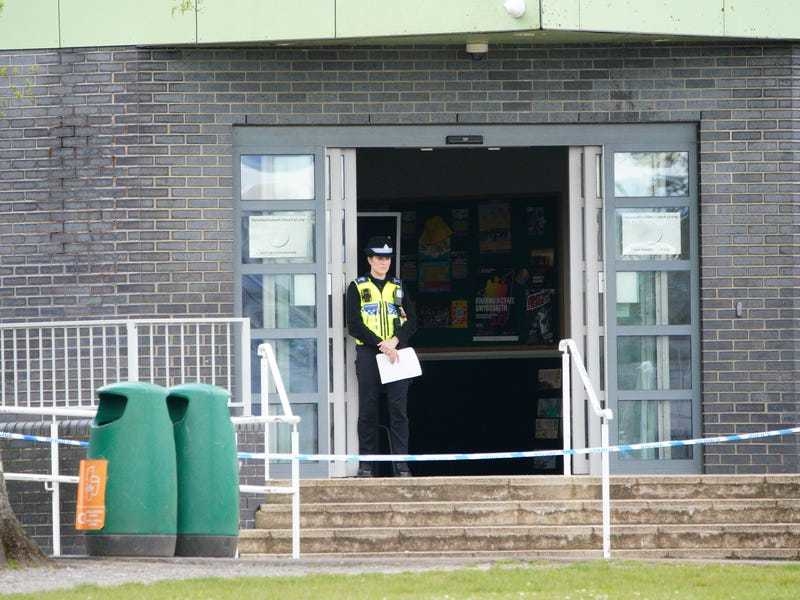The UK must end its “anti-maths mindset” to help grow the economy, Rishi Sunak will say.
The Prime Minister will announce an expert-led review into how to carry out his plan to ensure all pupils in England study some form of maths up to the age of 18, without making maths A-Level compulsory.
In a speech in north London on Monday, he will criticise a “cultural sense that it’s OK to be bad at maths” which is putting children “at a disadvantage” by failing to equip them with the analytical skills needed for the modern workplace.
Around a third of pupils fail to pass GCSE maths, and more than eight million adults have numeracy skills below those expected of a nine-year-old, according to Downing Street.
Mr Sunak is expected to tell an audience of students, teachers, education experts and business leaders: “We’ve got to change this anti-maths mindset. We’ve got to start prizing numeracy for what it is – a key skill every bit as essential as reading.
“I won’t sit back and allow this cultural sense that it’s OK to be bad at maths to put our children at a disadvantage.
“My campaign to transform our national approach to maths is not some nice-to-have. It’s about changing how we value maths in this country”.
Right now, just half of all 16 to 19-year-olds study any maths at all.
In a world where data is everywhere, our children’s jobs will require more analytical skills than ever before.
Find out more: https://t.co/aLwJye1ru5 pic.twitter.com/WcWTm0Tid5
— UK Prime Minister (@10DowningStreet) January 5, 2023
The Prime Minister first made his maths-to-18 pledge in January, stressing the importance of numeracy in jobs increasingly underpinned by data and statistics. He said it may not be achieved in this Parliament.
But critics accused Mr Sunak of rehashing his ambition to distract from an ongoing pay dispute which will see teachers walk out again later this month.
Former chancellor Mr Sunak will argue that maths attainment will help young people in their careers and grow the economy.
“We simply cannot allow poor numeracy to cost our economy tens of billions a year or to leave people twice as likely to be unemployed as those with competent numeracy.
“We have to fundamentally change our education system so it gives our young people the knowledge and skills they need – and that our businesses need – to compete with the best in the world.”

Mr Sunak will say the change will not happen “overnight”, with an advisory group including mathematicians, education leaders and business representatives to be formed to advise the Government.
The review will look at what core maths content students will be required to study, and whether a new maths qualification will be needed.
Mr Sunak will say: “We’ll need to recruit and train the maths teachers. We’ll need to work out how to harness technology to support them.
“And we’ll need to make sure this maths is additional to other subjects – not instead of them. But we are taking the first step today by identifying the maths content that will give our 16 to 18-year-olds the skills they need to get on in life.”
Geoff Barton, general secretary of the Association of School and College Leaders, said that instead of “re-announcing a vague and poorly thought-out policy”, Mr Sunak should focus on resolving the pay dispute which has triggered industrial action.
“It is hard to understand why the Prime Minister is rehashing his ambition of maths to 18 having only announced this policy in January and with no further detail of what it will entail or how it will be delivered.
“It seems like an attempt to divert attention away from the most pressing matter in education in England which is the industrial dispute triggered by the erosion of teacher pay and conditions and resulting crisis in recruiting and retaining enough staff.
“These severe shortages directly undermine the Prime Minister’s ambition because it means there are not enough maths teachers to deliver even the existing requirements let alone extend maths to every pupil to the age of 18.”
Labour criticised the “empty pledge”, with shadow education secretary Bridget Phillipson saying: “Once again, the Prime Minister needs to show his working: he cannot deliver this reheated, empty pledge without more maths teachers.
“But after 13 years of failing our children, the Tory government repeatedly misses their target for new maths teachers, with maths attainment gaps widening and existing teachers leaving in their droves.
“Labour does not need a new advisory group to make the right choices for our children. We will drive up standards in every corner of our country by investing in thousands more teachers, including maths teachers, by ending tax breaks for private schools.”
Royal Society president, Sir Adrian Smith, said it was “reassuring to see the PM’s commitment” as “more still needs to be done” to make courses such as core maths and mathematics skills, in general, widely available and appealing to students.
Sam Sims, chief executive of the charity National Numeracy, said: “Addressing poor numeracy needs to start much earlier than 16. We need a cradle to career vision for numeracy in the UK.”






